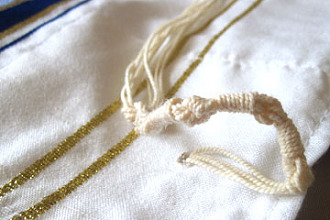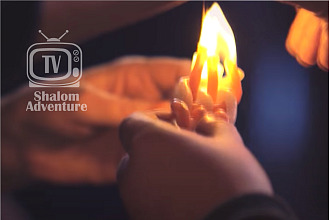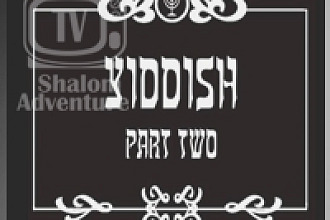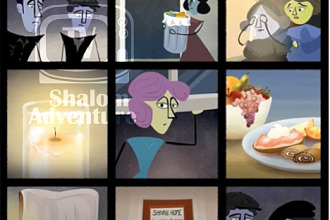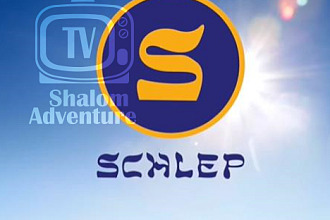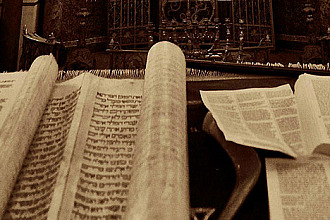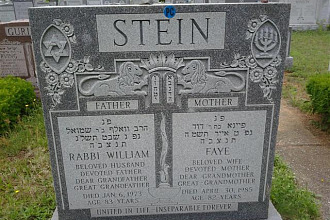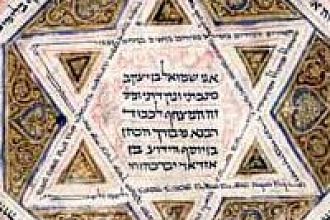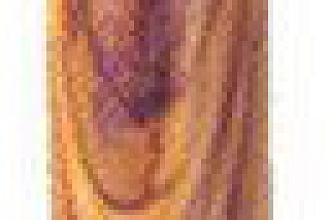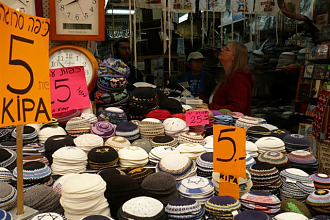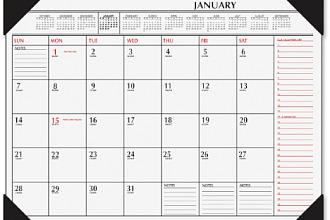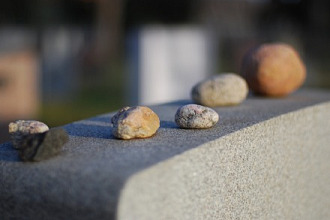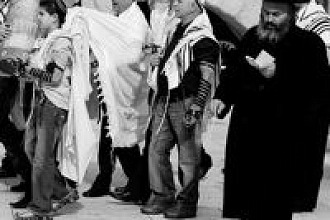A mezuzah is a little box that is nailed to the doorpost of a Jewish home. The Hebrew word mezuzah means doorpost. It is generally placed on the right side of the door about one quarter of the way from the top of the door, and the top of the mezuzah is tilted inwardly at an angle. On the outside of the mezuzah the Hebrew letter shin ( ש) is generally shown. The shin is the first letter in the word shema, which means hear or listen, and is the first word on the scroll that is in the mezuzah. Shin is also the first letter for the word Shadai, which means almighty, a reference to God.
Inside the mezuzah there is a little piece of rolled up parchment containing verses from the book of Deuteronomy chapters 6 and 11 starting with the shema which says "Hear O Israel: The LORD our God is one LORD. You shall love the LORD your God with all your heart, and with all your soul, and with all your might. And these words which I command you this day shall be in your heart." The "words that I command you this day" are the Ten Commandments, which are recorded in the previous chapter of Deuteronomy, chapter 5. Yet it is not the Ten Commandments that are written in the mezuzahs, but rather it is the instructions about writing the Ten Commandments on your heart, doors, etc. that is written in the mezuzah.
The LORD says these commandments need to be in our hearts. In other words, they should become a part of our lives. Our lifeblood should pulsate with their principles. The text then continues by saying, "You shall teach them diligently unto your children, and shall talk of them when you sit in your house, and when you walk by the way and when you lie down and when you rise up." We are being told here that God's holy law, his Ten Commandments, need to be incorporated into everything that we do 24 hours a day seven days a week. Their principles need to be lived out in our lives and taught to our children. Then in verse 9 Moses states, "You shall write them upon the posts of your house and on your gates."
Tradition takes these words literally and thus we have the words written on the scroll, put in boxes, and nailed to the doorpost. But if this part is to be taken literally it would stand to reason that the verse that says write them on the heart should also be taken literally. Should we have a surgeon place a scroll inside our chest? Obviously not. The Jewish prophet Jeremiah wrote in chapter 31:33, "Declares the LORD, I will put my teaching into their inmost being, and inscribe it upon their hearts..." Here God is saying He will write His law in our hearts. Of course, God is not talking about physically writing words inside our chests. He is saying that obedience will spring forth out of our lives because of the love God has instilled in our hearts and minds.
While having a mezuzah on the doorpost might be a nice reminder of the importance to live godly lives in our homes, merely having mezuzahs on our doors will not make us children of God. Rather than calling for physical mezuzahs on our doorposts Elohim is inviting us to live out His love and His law in our homes.
Originally from: Jewish Discoveries by Jeff Zaremsky, pages 197-198, which contains a total of 22 fascinating chapters of biblical history and lessons plus 25 rich Jewish tradition sections, and 27 powerful testimonies, with over 40 beautifully rendered professional works of art all on over 300 jam packed pages. You can own this treasure by visiting www.Jewishheritage.net
Picture from here








